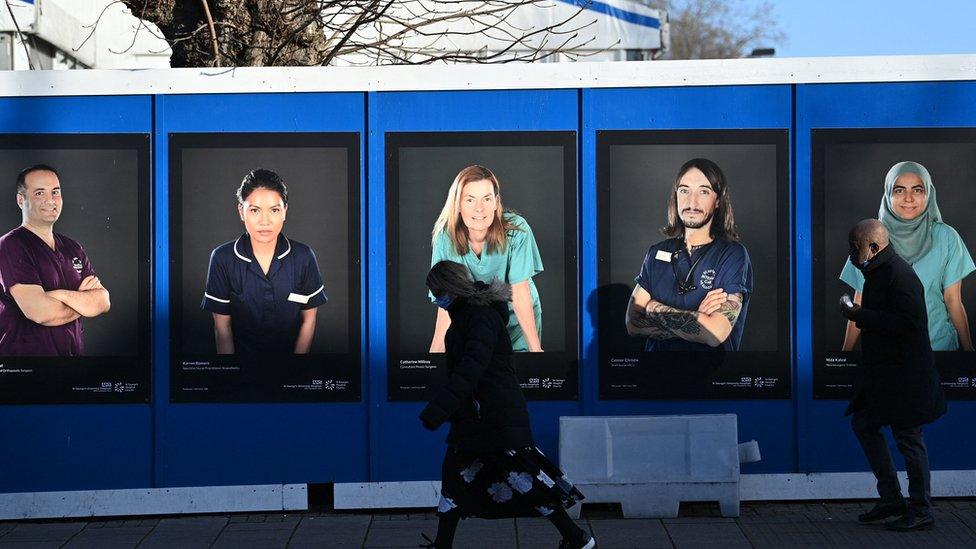Apprentice doctors considered in radical NHS plan
- Published

Apprentice-doctor roles may be rolled out as part of the government's plan to fill NHS staffing gaps in England.
NHS trusts will be given funding to run the five-year apprenticeship roles under the proposals.
At the end of the programme, the apprentices will become junior doctors, providing an alternative to the traditional medical-degree route.
It is part of a package of measures that could be introduced under the NHS workforce plan.
The plan is expected to be published in the coming weeks - and if the apprenticeship proposal gets the green light, they could be launched as early as September.
The plan is also likely to lead to the expansion of the nurse apprenticeship scheme that already exists.
It means school leavers will be able to enrol to become doctors without having to pay to go to university - it is not uncommon for medical students to graduate with debts above £80,000, according to the British Medical Association.
Sources said it was among the options being considered to help tackle staff shortages and broaden access to NHS jobs.
'Excessive bureaucracy'
Dr Latifa Patel, workforce lead for the British Medical Association, said: "Innovative approaches to education and training are welcome - but there are huge question marks over how far medical apprenticeships can solve this crisis."
There was little evidence employers would take on the apprentices - and it could hamper other doctors' training, as apprentices would need supervising.
Dr Patel said: "The medical-training pipeline is already stretched to its limits, with lecture halls at capacity, limited numbers of clinical placements and falling numbers of medical academic staff. Where are the extra resources going to come from?
"Ultimately, the solution the NHS needs is still the same - a dramatic increase in traditional medical-school places."
Meanwhile, Vanessa Wilson, of the University Alliance, said while apprenticeships offered a "high-quality training option", there were challenges expanding them in the NHS.
"Degree apprenticeships are currently mired in excessive bureaucracy and tied up in complex regulation," she said.
"Government and NHS England will have to work very closely with universities to address these issues if degree apprenticeships are going to be the solution to the workforce crisis."
Related topics
- Published6 January 2022
- Published6 June 2022
- Published6 June 2022